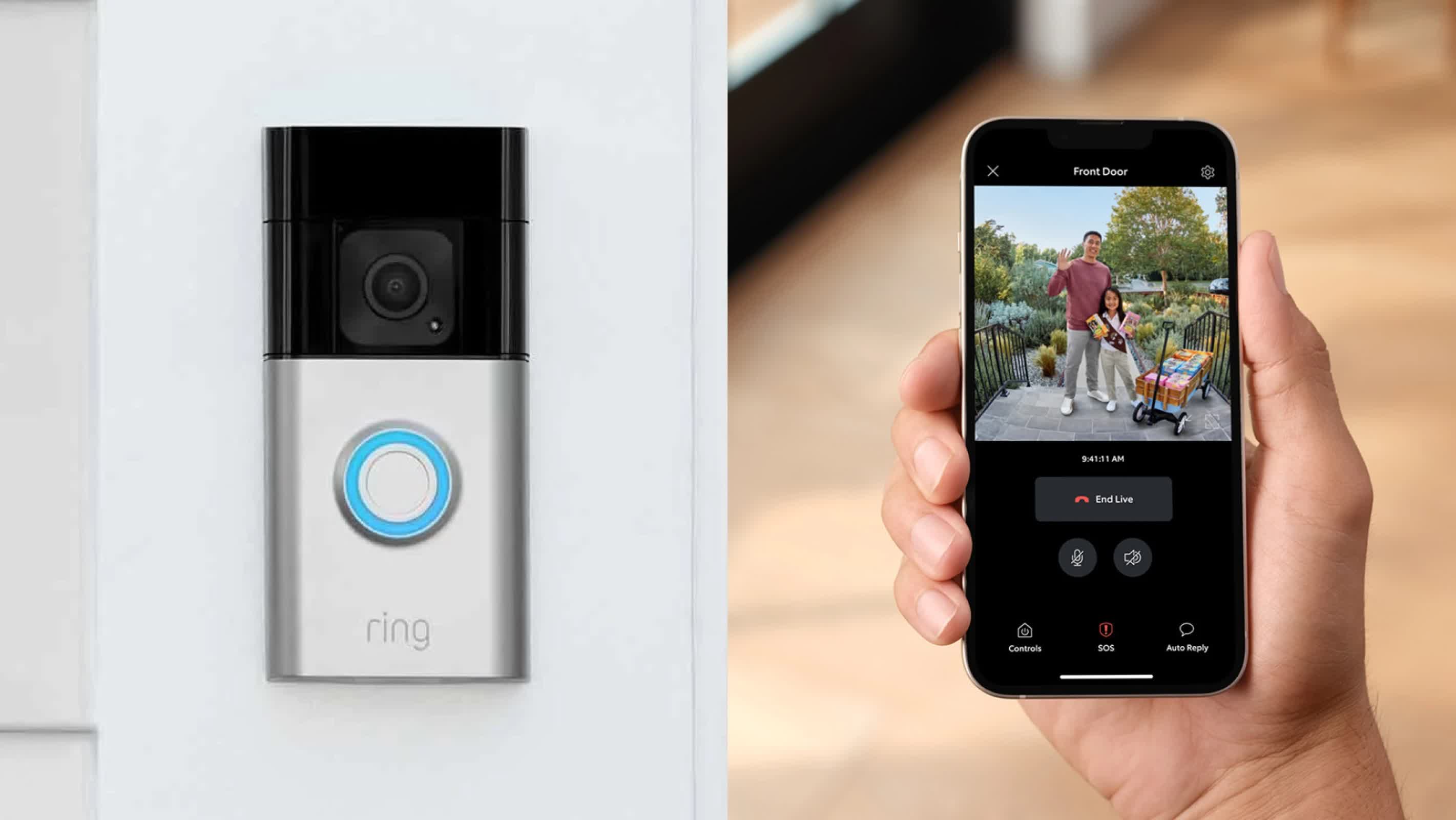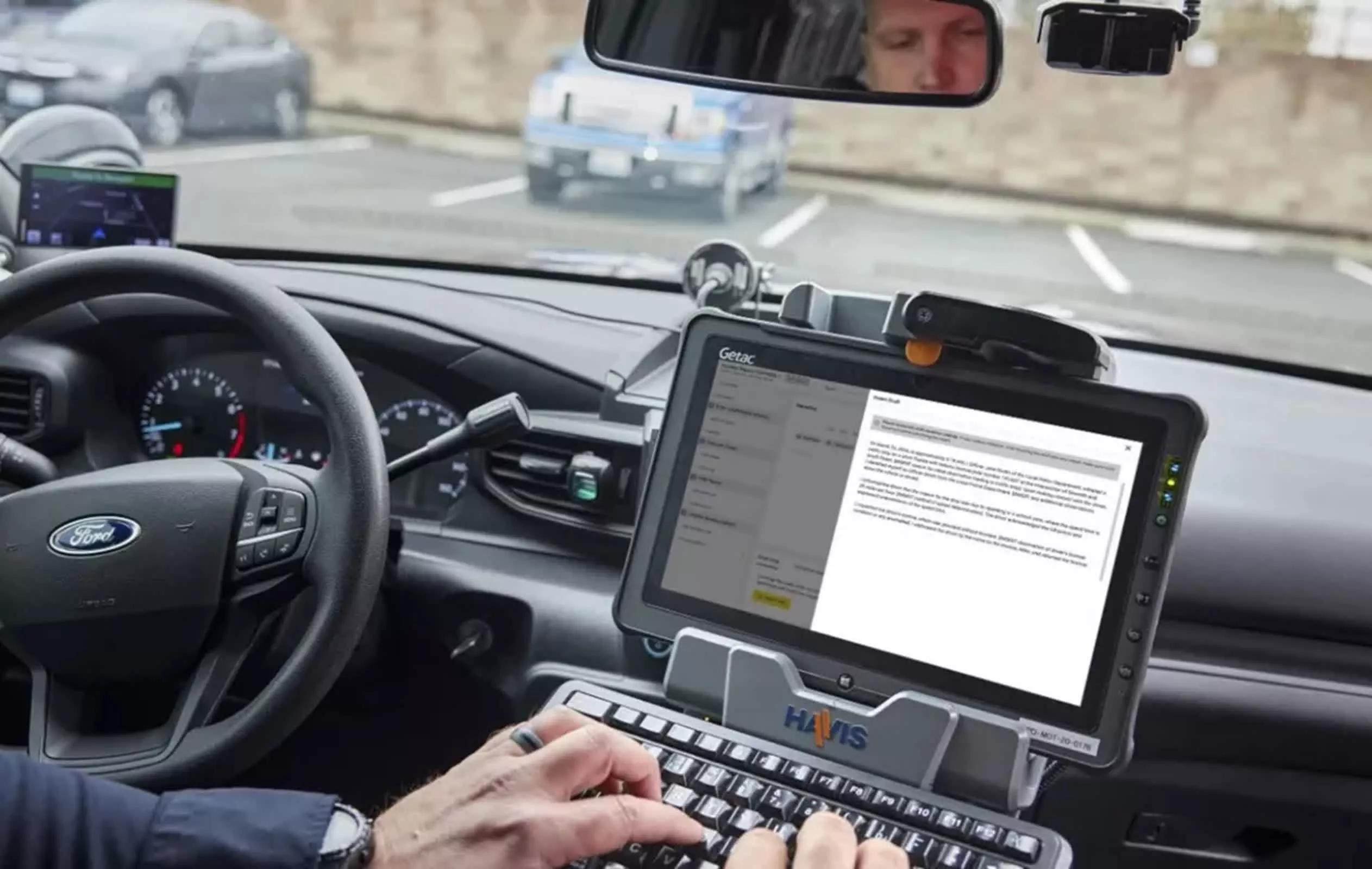A hot potato: Amazon's Ring, known for its video doorbells and home security devices, has resumed allowing police to request footage from users, a move that marks a significant shift in company policy and reignites debates over privacy and surveillance. Law enforcement agencies can now solicit video evidence from Ring customers to assist in criminal investigations, nearly a year and a half after the company suspended its previous police video request program.

The shift follows Ring's recently announced partnership with Axon, a law enforcement technology provider best known for its Tasers and digital evidence management systems.
According to details of the new program, footage requests will now be routed through Axon's platform instead of the Ring Neighbors app. Users will retain the option to either share or withhold their videos. A person familiar with the plans told Business Insider that Ring is also exploring future features that may allow police to livestream from Ring devices with user consent.
Ring founder Jamie Siminoff described the changes as an effort to "cultivate an essential link between our neighbors and public safety organizations," framing them as a return to the company's original mission of community crime prevention.
The move marks a reversal from Ring's prior direction under former CEO Liz Hamren, who had worked to distance the company from law enforcement ties. After civil liberties groups raised concerns about mass surveillance and potential misuse of video footage, Hamren retired the "Request for Assistance" feature in 2024. That tool had allowed police to request video directly from users through the Neighbors app.

Siminoff, who founded Ring in 2011 and sold it to Amazon for roughly $1 billion in 2018, rejoined the company in April 2025, replacing former CEO Liz Hamren. Upon his return, Siminoff launched a broad overhaul, reinstating Ring's original mission of "making neighborhoods safer" and urging staff to focus on faster execution, greater operational efficiency, and deeper integration of artificial intelligence.
A memo reviewed by Business Insider reveals that Siminoff promptly retired the previous, socially driven mission statement – "Keep people close to what's important" – in favor of a renewed focus on crime prevention.
Siminoff has also aligned Ring's new direction with Amazon's broader, performance-driven culture under CEO Andy Jassy. According to internal emails and memos, employees are being pushed to incorporate AI tools into their daily workflows and are expected to demonstrate their effectiveness with AI in order to earn promotions. Siminoff has argued that innovation in AI could "double our output immediately" and has encouraged staff to submit new ideas regularly.
Ring has already introduced new features in line with this strategy. The company recently launched AI-powered text alerts that offer detailed, real-time descriptions of activity captured by its cameras – for example, "A person is walking up the steps with a black dog." In a June email to employees, Siminoff said the system would soon be refined to notify users only when something "unusual" is detected.

Meanwhile, the company is preparing to launch its long-awaited home surveillance drone originally unveiled in 2020 and now undergoing internal office testing, according to people familiar with the plans.
While Siminoff maintains that these efforts are intended to bolster Ring's positive impact, not all employees are convinced. Several staff members told Business Insider they remain uneasy about the renewed partnership with Axon and the resulting police access to customer video, raising concerns about data security, transparency, and whether users fully understand how their footage might ultimately be used.
Privacy advocates have called the revived police collaboration a step backward, warning that easier law enforcement access to home video systems could lead to misuse and threaten civil liberties. In 2023, Amazon settled privacy violation allegations with the Federal Trade Commission for $5.8 million, although the company denied any wrongdoing.
According to both critics and some internal voices, Ring's new direction places it squarely back at the center of ongoing debates over technology, public safety, and personal privacy in the digital age.
Ring reverses course, lets police request video footage again